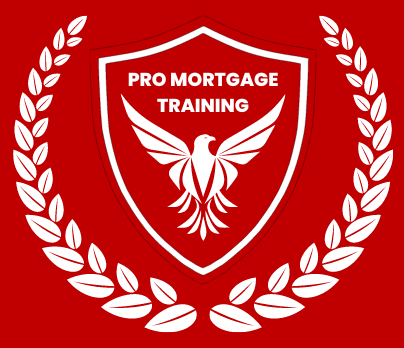
As we end 2023, the housing market has experienced a significant surge due to a sudden drop in interest rates. This unexpected decrease has ignited a fire in the mortgage markets.
This week marked a significant decrease in borrowing costs for 30-year fixed-rate mortgages, falling below 7% for the first time in four months, as reported by Freddie Mac, the housing-finance giant, on Thursday. A mere six weeks ago, the average rate for these home loans reached a peak of 7.8 percent, a level not witnessed since 2000. The mortgage rates for December 2023 are presently 6.95%.
Current State of Interest Rates:
During the week ending December 8, 2023, mortgage applications experienced a notable surge of 7.4%, surpassing the 2.8% increase reported in the previous week, as indicated by the latest Weekly Mortgage Applications Survey conducted by the Mortgage Bankers Association (MBA). Despite this positive trend, the purchase volume remains approximately 18% below the pace observed last year, underscoring the ongoing challenge for prospective homebuyers due to a limited housing inventory, despite the decrease in interest rates.
Responding to the decline in rates, refinance volume saw an uptick, with a particularly noteworthy increase in FHA and VA refinance applications. The refinance share of mortgage activity rose to 39.2% of total applications, up from the previous week’s 34.7%.
Mortgage Rate Predictions for 2024
Fannie Mae anticipates that 30-year mortgage rates in 2024 will range between 6.1% and 7% in 2024. In contrast, the National Association of Realtors (NAR) predicts a slightly lower range of 6.3% to 7.5%. Meanwhile, the Mortgage Bankers Association (MBA) foresees a decline in 30-year mortgage rates to 6.1% by the conclusion of 2024.
| Forecasting Entity | 2024 30-Year Mortgage Rate Range |
|---|---|
| Fannie Mae | 6.1% - 7% |
| NAR | 6.3% - 7.5% |
| MBA | Decline to 6.1% by end of 2024 |
Economic Growth and Inflation:
When forecasting mortgage rates, it is crucial to consider the economic conditions and inflationary trends.
In a scenario where the economy is expanding, and inflation maintains stability or experiences an upward trajectory, interest rates may witness an increase. Conversely, if economic growth decelerates or inflation stays at a low level, there is a possibility that rates might stabilize or undergo a slight decrease.
Federal Reserve Policy:
The Federal Reserve’s decisions regarding monetary policies wield considerable influence over mortgage rates. To control inflation and foster economic stability, the Federal Reserve makes adjustments to short-term interest rates.
Staying abreast of the Federal Reserve’s actions and statements allows consumers to anticipate potential trends in mortgage rates for the year 2024.
Housing Market Conditions:
5 ways to help you get a better interest rate
1: Lenders consider applicants’ credit scores when determining interest rates. A higher score indicates lower risk for the lender, resulting in more advantageous interest rates. To improve your credit score, ensure timely bill payments, reduce outstanding debts, and avoid opening new credit accounts before applying for a mortgage.
2: To secure the most favorable mortgage interest rate, it’s recommended to assess offers from different lenders. This is due to the varying rate structures and loan programs offered by each lender. By obtaining quotes from multiple sources, you can effectively compare and negotiate the terms that best suit your needs.
3: The duration of a loan, typically 15, 20, or 30 years, significantly impacts the interest rate. Shorter-term loans usually come with lower interest rates but higher monthly payments, whereas longer-term loans result in lower monthly payments but accrue higher interest rates over time. Evaluating your financial situation and long-term goals is crucial in determining the most suitable loan duration for you.
4: When contemplating a mortgage, borrowers should look beyond just the interest rates and consider the associated points and fees. Points, which are initial expenses that can reduce the interest rate, are usually represented as a percentage of the loan amount. It’s prudent to assess whether investing in points is a financially sensible choice that aligns with your long-term goals.
5: After identifying a favorable interest rate, it’s advisable to explore the option of locking it in. Interest rate lock agreements enable borrowers to secure a specific rate for a predetermined period, typically ranging from 30 to 60 days.
When will interest rates go down?
Consider the underlying cause behind the significant decline in interest rates: In reaction to the COVID-19 pandemic, the Federal Reserve reduced the federal funds rate to almost zero and acquired a substantial amount of mortgage-backed securities to prevent an economic crisis.
Consequently, mortgage rates plummeted, with 30-year mortgage rates hitting a historic low of 2.65% in January 2021, as reported by Freddie Mac.
Conclusion:
Timing the market on interest rates can be challenging. I only suggest considering it when refinancing. If you can afford a home with a down payment and manageable monthly payments, don’t wait for the optimal interest rate. Buying a home is a fundamental step in building wealth. Additionally, a higher interest rate can offer tax benefits. Feel free to explore more insights in our blog article, and reach out if you have further questions.
There are many different types of home loans, all with different requirements and guidelines. Standard mortgage financing provides the best interest rates, but not always flexible terms. Alternative financing may offer flexible terms but higher interest rates.
